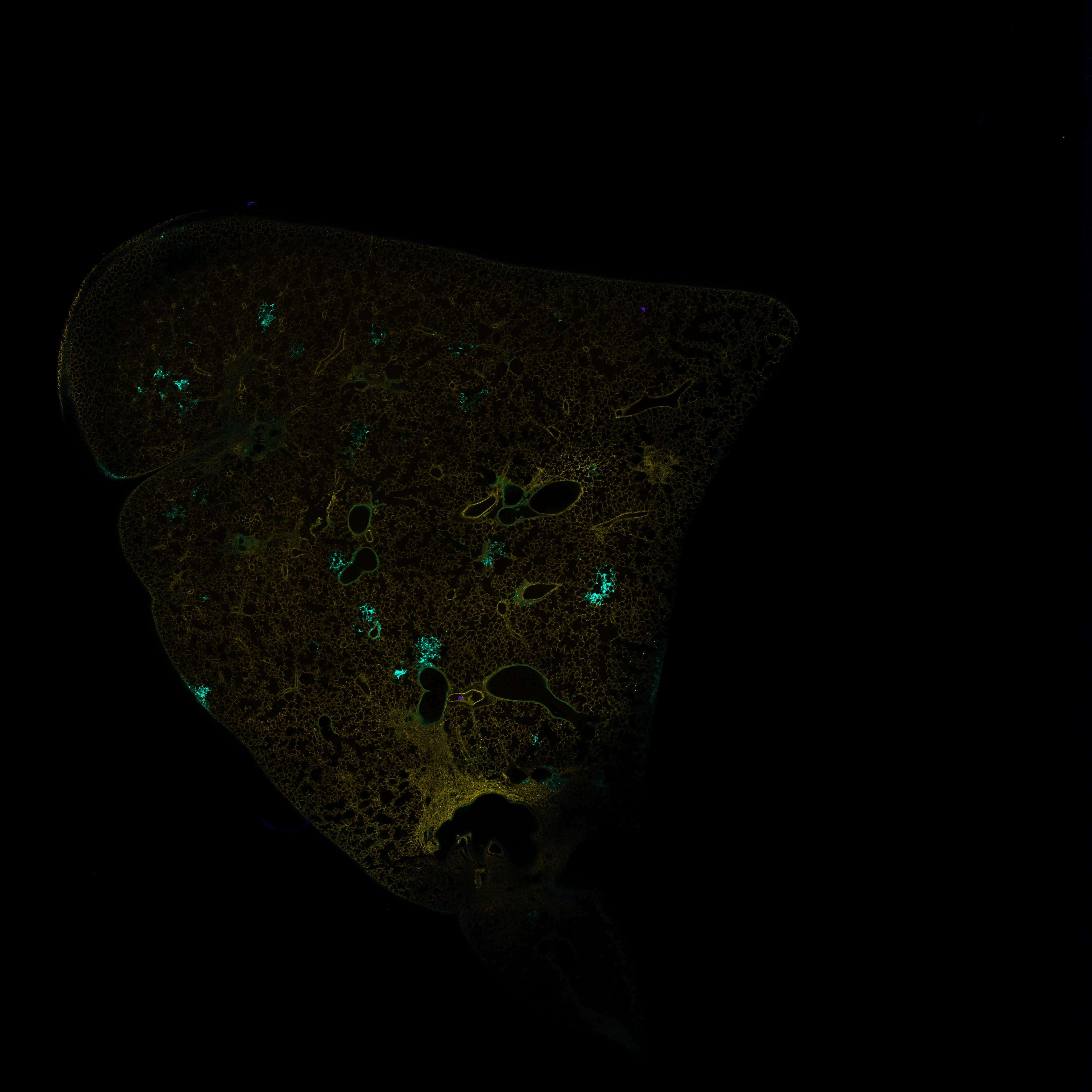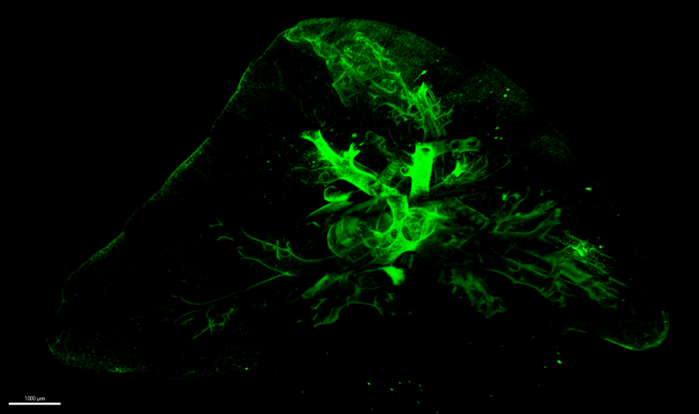Scientists have studied the immune system to find out why flu is easier to fight off than cancer – and hope it could help develop new early-stage treatments.
Studies of mice showed the immune system reacts less vigorously to cancer than to the flu virus, and can react to the same “low level” danger as a small cut.
Scientists at the Cancer Research UK Scotland Institute in Glasgow hope the research could lead to new treatments which boost the immune response so it fully activates and tackles cancer when it starts.
Each year, 16,300 people die from cancer in Scotland, with around 34,100 people newly diagnosed per year.
It was already understood that the body does not always recognise the major threat cancer presents, but perceives the danger posed by flu.
Scientists examined skin cancer that had spread to the lungs – how the immune system reacts to the cancer was the focus and therefore the results could be applicable to a variety of cancer types.
It is hoped the discovery, published in Science Immunology, will lead to new cancer treatments which are less harsh than existing ones.
Researchers experimented on mice, and found that while the immune system reacted vigorously to the flu virus, it did not fully activate against the cancer.
They specifically looked at cells in the immune system of mice – called dendritic cells – which also exist in humans.
There are two types of dendritic cells, one which exists in the cells which become tumorous and those which live in the lymph nodes, a key part of the immune system.
Once the cancer begins, the dendritic cells in the cancer move towards the lymph nodes, but once there, they do not give out the same level of danger alert to the dendritic cells in the lymph nodes as they do when the flu virus is present.

This means the immune system sees the level of threat from the cancer as the same as a minor injury, such as a small cut, and only activates in a low level way.
The next step for the research will be to further examine how the immune system communicates, how it receives signals alerting it to threats and how it understands how significant the threat is.
Further studies will also demonstrate whether the exposure of the immune system to the threat is a factor in how much, or how little, it reacts.

Lead researcher Dr Ed Roberts, of the Cancer Research UK Scotland Institute and the University of Glasgow, said: “We looked at cancer which had spread to the lungs as it affects the same organs which are affected by flu for the best comparison.
“We wanted to see how the immune system coped with the different threats and we saw that the alarm system didn’t activate as strongly as it did for the flu.
“Knowing that the emergency signals get stopped in the part of the process which the dendritic cells are responsible for, could allow new immunotherapies to be created which boost the immune system so it does attack the cancer, or activate the alert system itself.
“This could allow cancers to be caught at an early stage and tackled by a patient’s own immune system rather than harsh treatments which are necessary at a later stage when the cancer has grown and potentially spread to other parts of the body.”
Dr Catherine Elliot, director of research at Cancer Research UK, said: “The immune system is a growing focus of cancer research and this exciting research could help us find ways to help our own bodies fight cancer more vigorously.
“This discovery could help us tackle cancer in its early stages and prevent it developing, spreading and even starting in the first place.
“Further research will be needed but immunology studies such as this could be key to how we treat cancer in the future.”




Why are you making commenting on The National only available to subscribers?
We know there are thousands of National readers who want to debate, argue and go back and forth in the comments section of our stories. We’ve got the most informed readers in Scotland, asking each other the big questions about the future of our country.
Unfortunately, though, these important debates are being spoiled by a vocal minority of trolls who aren’t really interested in the issues, try to derail the conversations, register under fake names, and post vile abuse.
So that’s why we’ve decided to make the ability to comment only available to our paying subscribers. That way, all the trolls who post abuse on our website will have to pay if they want to join the debate – and risk a permanent ban from the account that they subscribe with.
The conversation will go back to what it should be about – people who care passionately about the issues, but disagree constructively on what we should do about them. Let’s get that debate started!
Callum Baird, Editor of The National
Comments: Our rules
We want our comments to be a lively and valuable part of our community - a place where readers can debate and engage with the most important local issues. The ability to comment on our stories is a privilege, not a right, however, and that privilege may be withdrawn if it is abused or misused.
Please report any comments that break our rules.
Read the rules here